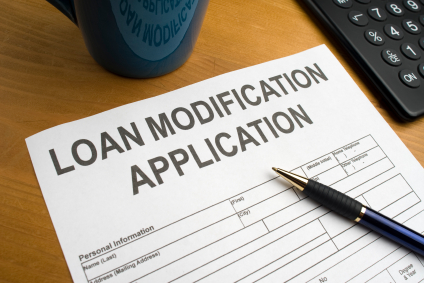
Before you panic because your home is on the verge of being seized by the bank, remember that there are ways to stop a mortgage foreclosure and save your property. When people buy a home, the last thing they plan to do is to hand it back to the lender because they have defaulted on their payment. But sometimes there are sudden unforeseen events that cause them to stop paying the amortizations, however unwillingly, and it is wise to know how to stop foreclosure before the bank starts the process.
The common reasons why a person has no choice but to stop paying his monthly dues are loss of employment, medical or personal emergency, death of a family member, divorce, diminution of income, incapacity to keep up with variable mortgage charges or consequences from a natural calamity that require a major expense.
When homeowners fail to pay the mortgage even for just 27 days like in Texas, they face the prospect of being thrown out of their homes because of foreclosure. In some states, a mortgage foreclosure is called a sheriff sale, the only difference being that the sheriff of the county where the foreclosed property is located must preside over the proceedings. Learn about the ways to stop a sheriff sale or a mortgage foreclosure and save yourself the hassle and anxiety of last-minute scuttling around looking for ways to prevent the process from happening.The most important thing you should do is to maintain open communication with your bank/lender. Do not ignore their calls and letters or delay talking to them. The initial embarrassment of admitting that you are not capable of prompt payments will pass and the bank will offer options so that they will not have to resort to filing a notice of default.
Next, review your loan documents and read the fine print so that you know what your mortgage rights are and what actions the bank can legally take against you. Contact your State Government Housing Office and study your state’s foreclosure laws and time frames (states differ in these aspects). You may also consult the US Department of Housing and Urban Development. They have approved housing counselors who provide free or very low-cost assistance in understanding the law, knowing your options and managing your finances. They may also represent you in negotiations with your lending bank.

Find ways to add to your finances. If you have other assets such as a second car or jewelry, sell them and use the proceeds to partially pay for your loan. Get a second job. Go through your daily expenses and see where you can scrimp. Being honest about your situation is the first step towards finding a solution for stopping mortgage foreclosure.Meet with your lender and ask what options they can offer you. Depending on the circumstances and information you give them, they will present you with the following compromise agreements.
• Loan Modification: A loan modification changes the original terms of the loan, such as interest rates, loan terms and monthly payments. A loan modification, or restructuring plan, affects your credit score but not as much as a foreclosure. It computes your monthly loan payment vis-a-vis your income so that you can continue paying and you can still live in your home.
• Refinance: Refinancing means you have been granted a new loan with better terms that will replace your existing mortgage. Refinancing requires the borrower to have adequate equity and meet the standards for lending. It does not have a negative impact on your credit score.
• Forbearance: Payment forbearance is offered to homeowners who have fallen behind in their loan obligations due to a short-term financial emergency, such as an illness or accident or as a result of a natural disaster. Forbearance gives you time to pick yourself up and recover by temporarily suspending or reducing the monthly payments for a specific period of time until you have improved your financial situation.
• Repayment Plan: If you have missed out on some payments for valid reasons, the lender may allow you to avail of a repayment plan. A repayment option gives you a chance to pay the past due over a specified period and in smaller amounts. This payment is added to your regular monthly mortgage amount until you are fully-paid and your loan is up to date.
• Deed-in-Lieu: A deed-in-lieu of foreclosure takes place when a borrower hands the property over to the lender in order to avoid the foreclosure process. This process benefits both parties in that it is completed in a shorter amount of time and borrowers benefit by getting out from under their home and released from most or all of the debt. One drawback is that a deed-in-lieu puts a permanent scar in one’s credit and it is not as easy to recover from as a short sale. Also, the lender can still require that the borrower pay the entire deficiency amount. The process is quite similar to a foreclosure accept the bank is able to avoid the lengthy repossession process because the borrower voluntarily gives the home back.
• Short Sale: A short sale is an agreement between the lender and the borrower to put your house up for sale for an amount that is less than the remaining balance of your mortgage. You have to give up your property and buy or rent another place to live in after the sale’s closing. It may totally eliminate your loan or reduce it a considerable amount and you may get assistance for relocation. Although it will still have a negative impact on your credit score, a short sale lets you recover your credit score faster than a foreclosure.

Borrowers usually result to a short sale after all other options have been found unsuccessful. Typically, lenders will require that borrowers attempt other loan workout programs before considering them for a short sale transaction. It is important to look into the tax implications of a short sale and consult a tax advisory so you won’t be caught off-guard when the sale pushes through.
In conclusion, plan ahead when you enter into a mortgage agreement with a bank or lending company and examine the details carefully. Do your due diligence and find out all you can about fixed rate mortgage versus variable mortgage charges, minimum deposit required, and even early repayment charge should you get a windfall and choose to redeem your loan earlier than the agreed term. By being well-informed and planning your mortgage judiciously, there is less likelihood that you will be needing these solutions to stop mortgage foreclosure.
For more information on the short sale process or to receive a free evaluation of where your home stands in today’s market, fill out the form below.
